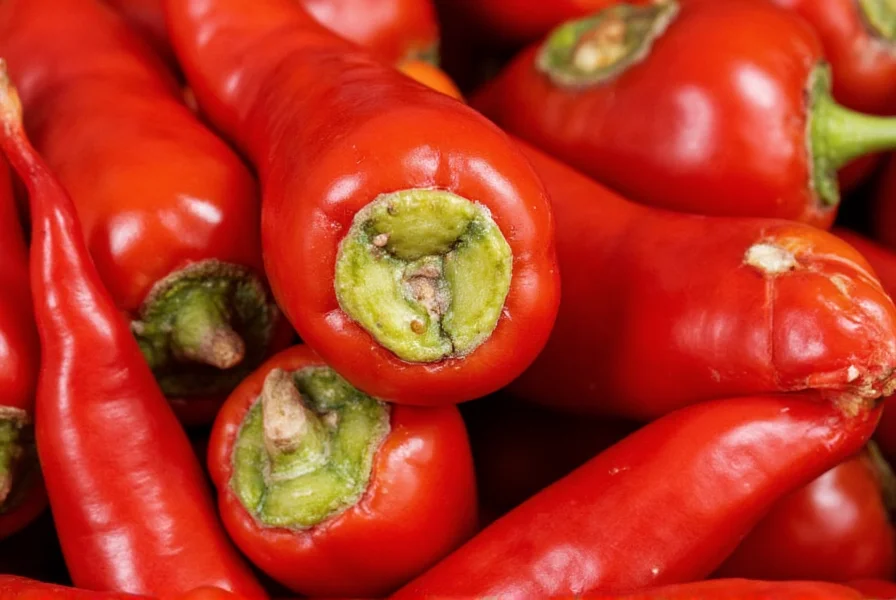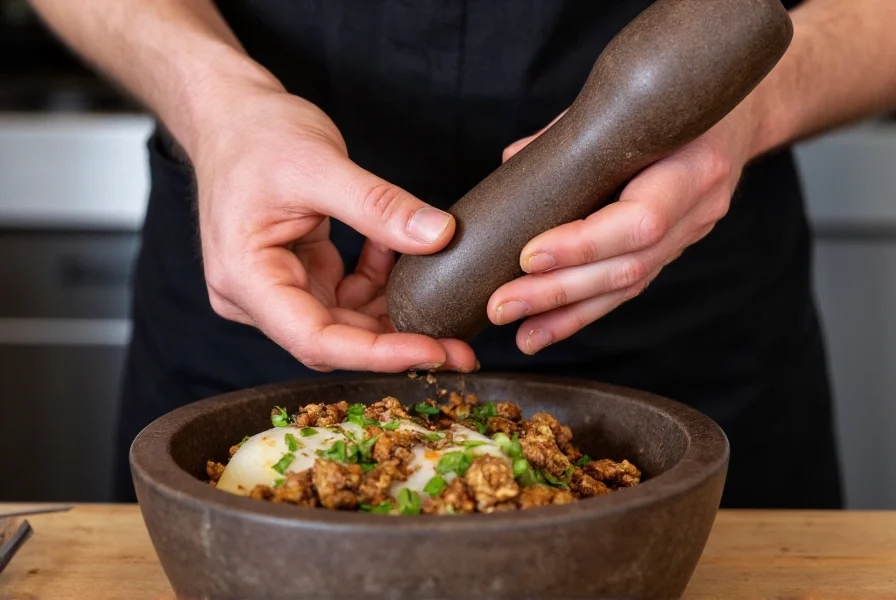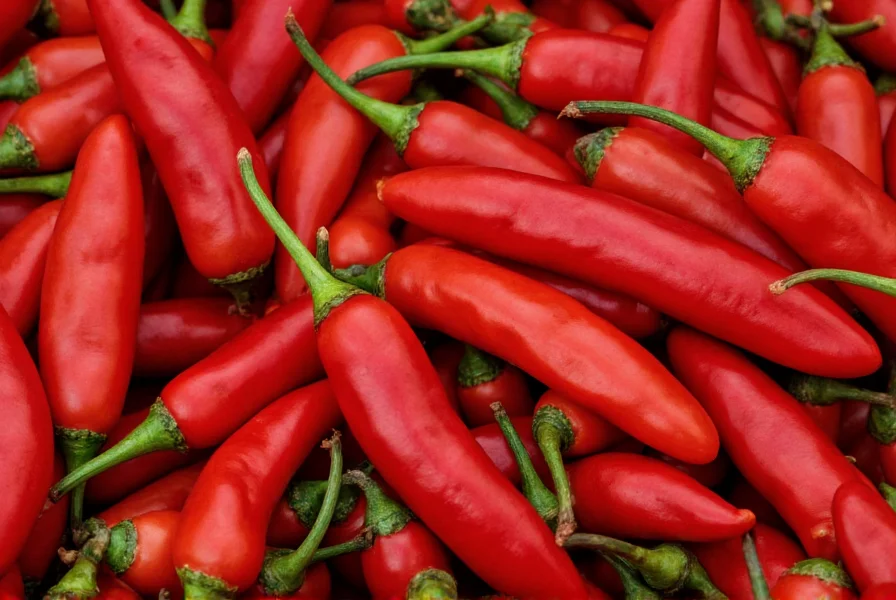What Exactly Is Melegueta Pepper?
Melegueta pepper (Aframomum melegueta) belongs to the Zingiberaceae family, making it a botanical cousin to ginger, cardamom, and turmeric. Native to the Gulf of Guinea region in West Africa, this spice has been traded along African and European routes since medieval times. The seeds grow inside distinctive red pods that split open when ripe, revealing small, reddish-brown to black seeds arranged in three sections.

Flavor Profile and Culinary Characteristics
Understanding melegueta pepper's unique taste profile explains why chefs prize it. The spice delivers:
- A warming heat that builds gradually (about 1/3 the heat of black pepper)
- Citrus notes reminiscent of bergamot and lemon
- Floral undertones similar to cardamom
- Earthy, woody base notes
- Subtle hints of nutmeg and coriander
When comparing melegueta pepper vs black pepper, the African spice offers more complexity with less sharp bite. Its heat develops slowly and lingers longer than black pepper's immediate punch. This makes it particularly valuable in dishes where you want warmth without overwhelming spiciness.
Historical Significance and Global Journey
Traders introduced melegueta pepper to Europe during the Middle Ages, where it became known as "grains of paradise"—a name reflecting its exotic origins and prized status. European explorers sought it as an alternative to black pepper during periods when traditional spice routes were disrupted. In West African cultures, the spice traditionally featured in ceremonial contexts and as a digestive aid.
Modern Culinary Applications
Chefs worldwide now rediscover melegueta pepper for its versatility. Professional kitchens use it to:
- Enhance seafood dishes (particularly shellfish)
- Balance rich meats like duck and venison
- Add complexity to chocolate desserts
- Season root vegetable preparations
- Create distinctive spice blends for rubs and marinades
For home cooking with melegueta pepper, toast whole seeds lightly before grinding to maximize flavor. Add ground spice toward the end of cooking to preserve its delicate citrus notes. The whole seeds work well in pickling brines or infused vinegars.
Where to Buy Melegueta Pepper and Storage Tips
Finding authentic melegueta pepper requires knowing where to look. Specialty spice shops, African grocery stores, and reputable online retailers offer the best sources. When purchasing, look for:
- Whole seeds rather than pre-ground powder (for maximum freshness)
- Deep reddish-brown color (avoid dull or faded seeds)
- Strong citrus aroma when crushed
Store melegueta pepper in an airtight container away from light and heat. Whole seeds maintain peak flavor for 12-18 months, while ground spice loses potency within 6 months. For extended storage, keep in the freezer.
| Spice | Heat Level | Flavor Notes | Best Culinary Uses |
|---|---|---|---|
| Melegueta Pepper | Moderate (gradual) | Citrus, floral, warm | Seafood, chocolate, root vegetables |
| Black Pepper | Sharp (immediate) | Pungent, woody | Universal seasoning |
| Cardamom | Mild | Floral, eucalyptus | Baking, rice dishes |
Melegueta Pepper Substitutes
When you can't find authentic melegueta pepper, these alternatives work well depending on your recipe:
- For most applications: Equal parts black pepper and cardamom
- For baking: Cardamom with a pinch of coriander
- For savory dishes: Pink peppercorns with a touch of ginger
- Closest single substitute: Long pepper (though harder to find)
Remember that no single spice perfectly replicates melegueta pepper's unique profile. The best approach combines 2-3 complementary spices to approximate its complex character.
Nutritional Profile and Traditional Uses
While scientific research remains limited, traditional African medicine has used melegueta pepper for centuries as a digestive aid and anti-inflammatory agent. The seeds contain beneficial compounds including:
- 6-gingerol (also found in ginger)
- Paradol (unique to Aframomum species)
- Essential oils with antioxidant properties
Modern culinary applications focus primarily on flavor rather than health claims, though its traditional use as a digestive stimulant continues in some cultures.

Simple Recipe Ideas Featuring Melegueta Pepper
Experiment with these approachable ways to use melegueta pepper:
Citrus-Marinated Shrimp
Combine 1 teaspoon freshly ground melegueta pepper with orange zest, olive oil, garlic, and lemon juice. Marinate shrimp for 30 minutes before grilling.
Spiced Chocolate Truffles
Add 1/4 teaspoon ground melegueta pepper to your favorite dark chocolate ganache recipe. The spice enhances chocolate's natural fruit notes.
Roasted Root Vegetables
Toss carrots, parsnips, and beets with olive oil, 1/2 teaspoon melegueta pepper, and a pinch of salt before roasting at 400°F.
Common Questions About Melegueta Pepper
Is melegueta pepper the same as grains of paradise?
Yes, melegueta pepper and grains of paradise refer to the same spice (Aframomum melegueta). The name "grains of paradise" originated in medieval Europe when traders marketed the spice as an exotic alternative to black pepper.
How does melegueta pepper compare to black pepper?
Melegueta pepper offers more complex flavor than black pepper with citrus and floral notes alongside its warmth. It provides about one-third the heat of black pepper with a slower-building, longer-lasting warmth rather than an immediate sharp bite.
Can I substitute melegueta pepper in recipes calling for black pepper?
Yes, but adjust quantities carefully. Use approximately three times the amount of melegueta pepper to match black pepper's heat level, though you may prefer less due to its complex flavor profile. Start with half the amount and adjust to taste.
Does melegueta pepper have any health benefits?
Traditional African medicine uses melegueta pepper as a digestive aid and anti-inflammatory agent. While scientific research is limited, the spice contains compounds like paradol and 6-gingerol that show antioxidant properties in preliminary studies.
Where can I find authentic melegueta pepper?
Look for melegueta pepper at specialty spice shops, African grocery stores, or reputable online retailers that specialize in rare spices. Always choose whole seeds over pre-ground powder for maximum freshness and flavor retention.











 浙公网安备
33010002000092号
浙公网安备
33010002000092号 浙B2-20120091-4
浙B2-20120091-4